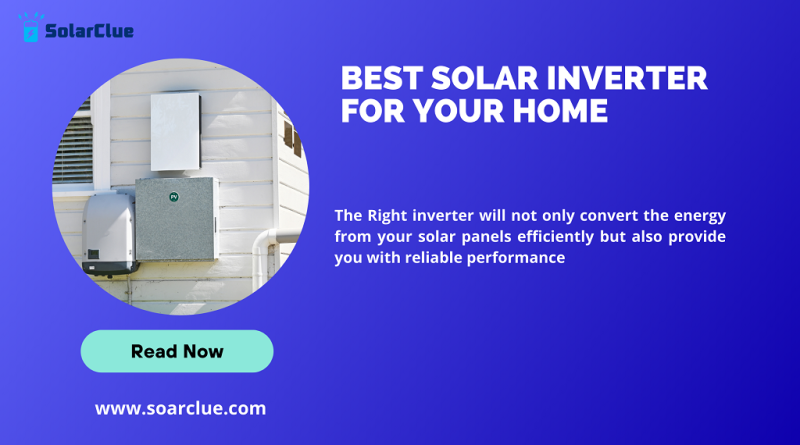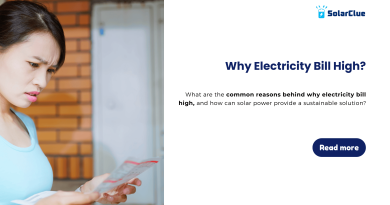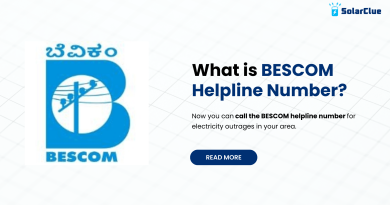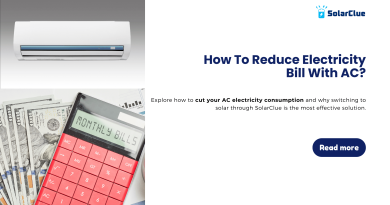Best Solar Inverter for Your Home
Hey there! So, you’re on a mission to find the best solar inverter for your home? That’s a great move towards harnessing clean, renewable energy and saving on your electricity bills. But with so many options out there, how do you choose the right one? Don’t worry, I’m here to help you navigate through this process in simple, easy-to-understand terms. Let’s break it down and find the perfect solar inverter for your needs.
Table of Contents
What is a Solar Inverter?
Before diving into the specifics, let’s start with the basics. A solar inverter is a crucial component of any solar power system. It takes the direct current (DC) electricity generated by your solar panels and converts it into alternating current (AC) electricity, which is what your home appliances use.
Why Do You Need a Solar Inverter?
1.Conversion of Power: Solar panels produce DC electricity. Since most household appliances run on AC electricity, an inverter is needed to make the electricity from your solar panels usable.
2.Efficiency: A high-quality inverter ensures that the conversion from DC to AC is as efficient as possible, meaning you get the most out of the solar energy your panels generate.
3.Monitoring and Control: Many modern inverters come with features that allow you to monitor your solar system’s performance. This means you can keep track of how much energy you’re producing and using.
Types of Solar Inverters
When searching for the best solar inverter for your home, you’ll come across several types. Here’s a quick rundown:
1. String Inverters
- How They Work: These inverters connect multiple solar panels together in a series, or “string.” They convert the DC electricity from the entire string into AC electricity.
- Pros: Cost-effective and simple to install.
- Cons: If one panel has an issue or is shaded, it can affect the performance of the entire string.
2. Microinverters
- How They Work: These are attached to each solar panel individually. Each microinverter converts DC to AC at the panel level.
- Pros: More efficient, especially in situations where panels might be shaded or oriented differently. Easier to troubleshoot and replace individual components.
- Cons: Higher cost and a more complex installation.
3. Power Optimizers
- How They Work: Power optimizers are attached to each panel and work with a central string inverter. They enhance the performance of each panel before the power is sent to the inverter.
- Pros: Improves efficiency and performance, especially with partial shading or different panel orientations.
- Cons: More expensive due to additional components.
4. Hybrid Inverters
- How They Work: Hybrid inverters can manage both solar energy and battery storage. They allow you to store excess solar energy for use when the sun isn’t shining.
- Pros: Versatile and future-proof, ideal for those looking to add battery storage later.
- Cons: Generally more expensive and complex.
Key Factors to Consider When Choosing the Best Solar Inverter
Now that you know about the different types of inverters, here are some key factors to consider when choosing the best one for your home:
1. Efficiency
- Why It Matters: Higher efficiency means less energy is lost during the conversion process. Look for inverters with high efficiency ratings—typically above 95% is ideal.
2. Wattage and Capacity
- Why It Matters: Ensure the inverter can handle the total output of your solar panel system. Check the wattage rating to match your solar panel capacity.
3. Warranty and Support
- Why It Matters: A good warranty is crucial for peace of mind. Most inverters come with a warranty of 5-10 years. Check what’s covered and how to get support if needed.
4. Brand and Reputation
- Why It Matters: Choose reputable brands known for reliability and quality. Check customer reviews and ratings to gauge performance.
5. Features
- Why It Matters: Consider additional features like monitoring systems, remote control, and compatibility with battery storage. These can enhance your overall solar experience.
6. Installation and Maintenance
- Why It Matters: Professional installation is recommended to ensure safety and optimal performance. Regular maintenance can help extend the life of your inverter.
Comparing Solar Inverters: A Quick Reference Table
To help you make an informed decision, here’s a table comparing different types of solar inverters based on key factors:
| Type | Efficiency | Cost | Pros | Cons |
|---|---|---|---|---|
| String Inverter | High (95-98%) | Lower | Cost-effective, simple setup | Performance affected by shading |
| Microinverter | High (95-98%) | Higher | Maximizes panel efficiency, handles shading | More expensive, complex installation |
| Power Optimizer | High (95-98%) | Moderate | Enhances performance, good with shading | Higher cost, more components |
| Hybrid Inverter | High (95-98%) | Highest | Supports battery storage, versatile | Most expensive, complex setup |
Conclusion
Choosing the best solar inverter for your home doesn’t have to be a daunting task. By understanding the different types of inverters and considering key factors like efficiency, cost, and features, you can make a smart decision that fits your needs. Remember, the right inverter will not only convert the energy from your solar panels efficiently but also provide you with reliable performance and peace of mind.
So, whether you’re looking for a cost-effective string inverter, a high-performance microinverter, or a versatile hybrid inverter, take your time to research and choose the one that aligns with your energy goals and budget. Here’s to making a positive impact on both your wallet and the environment!
Visit SolarClue® to see the best Solar Inverter. SolarClue® actively sells solar energy products at discounts of up to 50% on its online marketplace.
FAQ
1. How do I determine the right size of the inverter for my solar system?
- Match the inverter’s wattage rating to the total output of your solar panel system. For example, if your solar panels generate 5,000 watts of power, choose an inverter that can handle at least that amount.
2. What should I look for in terms of warranty for a solar inverter?
- Look for an inverter with a warranty of at least 5 years. Some high-quality brands offer warranties up to 10 years. Ensure you understand what’s covered and the process for making a claim.
3. Can I use a solar inverter with any type of solar panel?
- Most inverters are compatible with various types of solar panels, but it’s always best to check compatibility with the inverter manufacturer or consult with a solar professional.
4. Are there any additional costs associated with installing a solar inverter?
- Besides the cost of the inverter itself, you may incur additional costs for installation and potential maintenance. Professional installation is recommended to ensure proper setup and operation.
5. How can I monitor the performance of my solar inverter?
- Many modern inverters come with monitoring systems or apps that let you track the performance of your solar power system. Check if the inverter you’re considering offers these features.




